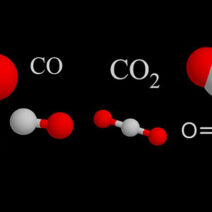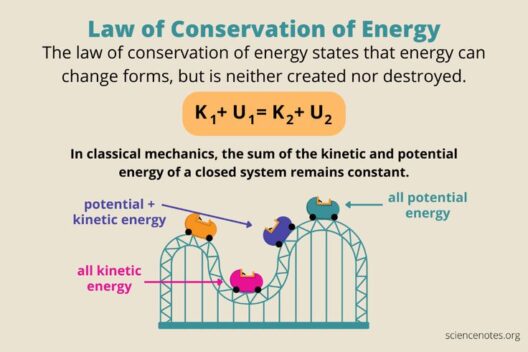Solar energy represents one of the most promising and effective solutions to combat global warming. As a renewable resource, it offers a sustainable way to harness energy while minimizing adverse environmental impacts. In examining the myriad benefits and technologies associated with solar power, it becomes evident how this energy source is pivotal in diminishing greenhouse gas emissions and mitigating climate change.
The fundamental principle of solar energy lies in its ability to convert sunlight into usable electricity. This process can take several forms, notably photovoltaics (PV) and concentrated solar power (CSP). Each method possesses distinct advantages and applications, catering to different energy needs and geographic considerations.
Photovoltaics are perhaps the most ubiquitous form of solar energy technology. PV cells, largely made from silicon, directly convert sunlight into electricity through the photovoltaic effect. These cells can be deployed on a variety of scales, from small residential rooftops to large solar farms that generate substantial electricity for the grid. The modular nature of PV systems enables flexibility in installation, facilitating energy generation in urban and rural settings alike.
Concentrated solar power (CSP), on the other hand, utilizes mirrors or lenses to concentrate sunlight onto a small area, producing heat that can drive a steam turbine connected to an electricity generator. CSP systems are particularly efficient in regions with high direct sunlight, and they often incorporate thermal storage systems. This capability allows for energy production even when sunlight is not available, thereby stabilizing the energy supply.
In terms of environmental impact, solar energy stands out by drastically reducing dependency on fossil fuels. Fossil fuel combustion is responsible for a majority of global greenhouse gas emissions, wreaking havoc on atmospheric stability and contributing to climate change. By transitioning to solar energy, societies can lower their carbon footprint, engage in cleaner energy practices, and foster healthier ecosystems. This shift is not merely an option—it’s imperative for achieving global climate targets.
Moreover, solar energy facilitates energy independence. Countries blessed with abundant sunlight can significantly reduce their reliance on imported fossil fuels, granting them greater control over energy production and pricing. This self-sufficiency bolsters energy security, enhances local economies, and fosters job creation within the renewable energy sector. From manufacturing solar panels to installing and maintaining solar systems, the solar industry offers numerous employment opportunities.
Furthermore, the integration of solar energy into the existing energy infrastructure is witnessing an upsurge driven by technological innovations. Advanced energy storage solutions, such as lithium-ion batteries, and innovative grid management systems are transforming how solar energy is utilized. These advancements address intermittency issues, allowing solar power to be stored for use during peak demand periods or during the night.
The environmental and social benefits offered by solar energy extend to public health as well. Air pollution from burning fossil fuels is linked to various health problems, including respiratory diseases, cardiovascular conditions, and premature death. By reducing reliance on fossil fuels through solar energy implementation, communities can experience cleaner air, leading to improved public health outcomes. The transition to solar power not only addresses the climate crisis but also promotes a healthier population.
Moreover, the economic incentive for adopting solar energy continues to grow. The initial investment in solar technologies has declined dramatically over the past decade. Cost-competitive solar solutions are increasingly accessible to both residential and commercial entities. Incentives such as tax credits, rebates, and solar renewable energy certificates further enhance the financial viability of solar investments. This decrease in costs, coupled with the long-term savings from reduced energy bills, makes solar power an attractive option for individuals and businesses alike.
The role of policy and governance cannot be understated in the promotion of solar energy. Government initiatives, international agreements, and regulatory frameworks play a critical role in shaping the renewable energy landscape. Policies that bolster renewable energy deployment, such as feed-in tariffs and renewable portfolio standards, can accelerate the transition to a low-carbon economy. Collaborative efforts on local, national, and global scales can catalyze this transformation, resulting in significant emissions reductions.
As the evidence mounts regarding the efficacy of solar energy in combating climate change, it is essential to address the challenges that accompany its implementation. Despite its numerous advantages, solar energy faces hurdles, including land use concerns, resource extraction for manufacturing, and end-of-life disposal of solar panels. Solutions to these challenges are being developed; recycling initiatives are emerging that seek to minimize waste and ensure that solar technologies are sustainable throughout their lifecycle.
In conclusion, the pivot to solar energy represents a viable strategy for averting the dire consequences of climate change. By leveraging this abundant resource, societies can reduce greenhouse gas emissions, promote energy independence, advance public health, and stimulate economic growth. Solar energy stands as a beacon of hope in the pursuit of a cooler planet. Embracing solar energy is not merely a technological shift; it is a commitment to safeguarding our environment for future generations.
In contemplating the future of solar energy, it is crucial to maintain momentum both in technological advancements and in policy initiatives that support renewable energy. The path forward is illuminated by the sun, and harnessing its power is essential for creating a sustainable and resilient global community. The time to act is now, for the benefits of solar energy extend far beyond individual households; they encompass the promise of a flourishing planet.








